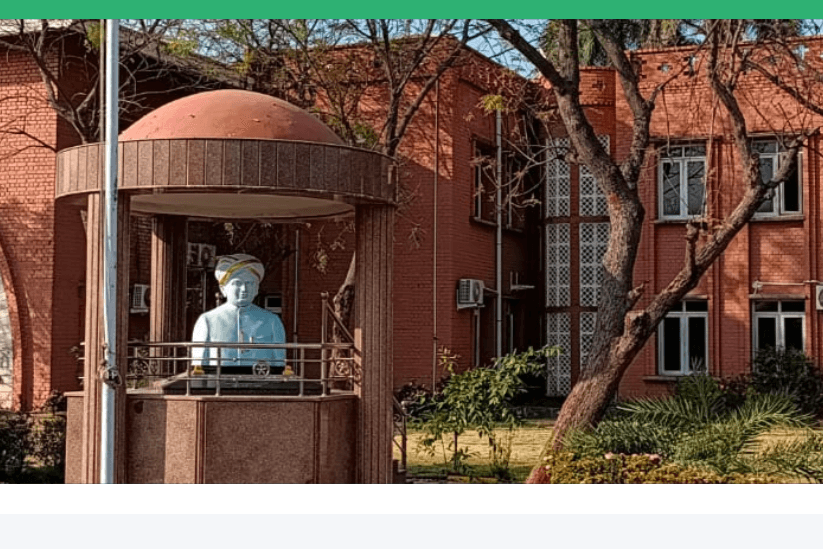Table of Contents
The Manonmaniam Sundaranar University is going to conduct a Tamil Nadu State Eligibility Test (TNSET) from 3rd to 25th June 2024. The exam will be conducted online mode through a computer-based test (CBT) to select eligible candidates for Assistant Professor posts in Tamil Nadu. To pass this examination, candidates must know what to prepare and how to prepare, this could be understood by going through TNSET Syllabus 2024 and exam pattern which will help candidates decide on a study plan accordingly. Good preparation is key to score high marks in exam and that can be achieved by studying all the topics provided in CBT syllabus. Candidates can get an idea about number of questions, total marks, type of questions, subjects to be covered, etc. from this article.
TNSET Syllabus and Exam Pattern 2024
Candidates who are going to appear for TNSET exam 2024 must be aware of latest syllabus and exam pattern to prepare topics accordingly. The latest TNSET Syllabus 2024 is provided by official exam conducting authorities including a list of subjects-wise topics. Candidates must also understand number of questions to be asked from each subject, this will help candidates decide which subject has more weightage and needs more focus.
| TNSET Syllabus 2024- Highlights | |
| Organization | Manonmaniam Sundaranar University |
| Exam Name | Tamil Nadu State Eligibility Test (TNSET) |
| Post Name | Assistant Professors |
| Mode of Exam | Computer-Based Test (Offline) |
| Exam Date | 3rd to 25th June 2024 (Tentative) |
| Type of Questions | Objective-Type/Multiple-Choice Questions (MCQ) |
| No. of Questions | 150 |
| Total Marks | 300 |
| Time Duration | 3 hours |
| Official Website | https://msutnset.com/ |
TNSET Exam Pattern 2024
Before starting your preparation for TNSET examination, it is advised to go thoroughly through exam pattern to get details about exam duration, marks, and some other important details. The Tamil Nadu State Eligibility Test will include two papers- Paper I and Paper II, question paper will be in English Language except for language papers.
- There will be objective-type/MCQs in both TNSET papers I and II.
- For every correct answer, candidates will get +1.
- There will not be any negative marks for wrong answers.
- Candidates will be given a total of 3 hours to complete their exam without any break.
| Papers | Subjects | No. of Questions | Marks |
| Paper I | General Knowledge | 50 | 100 |
| Teaching Capabilities | |||
| Research Aptitude | |||
| Reasoning Ability | |||
| Reading Comprehension | |||
| Higher Education System | |||
| People and Development | |||
| Environment | |||
| Mathematical Aptitude | |||
| Divergent thinking and general awareness of the Candidate | |||
| Paper II | Domain Knowledge from subject chosen | 100 | 200 |
| Total | 150 | 300 | |
TNSET Syllabus 2024
The candidates who need to appear for this state eligibility test must know Paper 1 and Paper 2 TNSET Syllabus 2024. TN SET Paper 1 exam is conducted to assess the general knowledge, teaching capabilities, research aptitude, reasoning ability, reading comprehension, higher education system, people and development, environment, mathematical aptitude , divergent thinking and general awareness of the Candidate. Paper-wise syllabus providing the list of topics to be prepared for examination is provided below. Candidates need to focus on every topic to achieve a better score and pass this examination.
TNSET Paper 1 Syllabus 2024
The first paper of TNSET examination mainly focused on general knowledge, teacher aptitude and research aptitude section including various sections such as communication, higher education system, logical reasoning, data interpretation, mathematical reasoning & aptitude, etc.
Teaching Aptitude
Topics such as methods of teaching in institutions, evaluation systems, concept of teaching, teaching support systems, etc. are to be covered by candidates for TNSET Paper 1
- Teaching: Concept, Objectives, Levels of teaching (Memory, Understanding, and Reflective), Characteristics and basic requirements
- Learner’s characteristics: Characteristics of adolescent and adult learners (Academic, Social, Emotional, and Cognitive), Individual differences
- Factors affecting teaching related to Teacher, Learner, Support material, Instructional facilities, Learning environment, and Institution
- Methods of teaching in Institutions of higher learning: Teacher-centred vs. Learner-centered methods; Off-line vs. On-line methods (Swayam, Swayamprabha, MOOCs, etc.)
- Teaching Support System: Traditional, Modern, and ICT-based
- Evaluation Systems: Elements and Types of Evaluation, Evaluation in Choice Based Credit System in Higher education, Computer-based testing, Innovations in evaluation systems
Communication
Candidates need to cover topics like barriers to effective communication, meaning & types of communication and some other topics that are listed below from Communication unit.
- Communication: Meaning, types and characteristics of communication
- Effective communication: Verbal and Non-verbal, Inter-Cultural and group communications, Classroom communication
- Barriers to effective communication
- Mass-Media and Society
Research Aptitude
Topics like steps of research, concept of research, research ethics, thesis & article writing, etc. must covered by candidates for preparing Research Aptitude section.
- Research: Meaning, Types, and Characteristics, Positivism and Postpositivistic approach to research
- Methods of Research: Experimental, Descriptive, Historical, Qualitative, and Quantitative methods
- Steps of Research
- Thesis and Article Writing: Format and styles of referencing
- Application of ICT in research
- Research ethics
Mathematical Reasoning & Aptitude
The list of topics that are to be prepared for mathematical reasoning & aptitude section is provided below, candidates must practice these topics more and more to score better.
- Number series, Letter series, Codes, and Relationships
- Mathematical Aptitude (Fraction, Time & Distance, Ratio, Proportion and Percentage, Profit and Loss, Interest and Discounting, Averages, etc.)
Logical Reasoning
Analogies, classical square of opposition, Venn diagram, deductive & inductive reasoning, etc. are some of the topics that a candidate must study for logical reasoning section.
- Understanding the structure of arguments: argument forms, the structure of categorical propositions, Mood and Figure, Formal and Informal fallacies, Uses of language, Connotations, and denotations of terms, Classical square of opposition
- Evaluating and distinguishing deductive and inductive reasoning
- Analogies
- Venn diagram: Simple and multiple uses for establishing the validity of arguments
- Indian Logic: Means of knowledge
- Pramanas: Pratyaksha (Perception), Anumana (Inference), Upamana (Comparison), Shabda (Verbal testimony), Arthapatti (Implication) and Anupalabddhi (Non-apprehension)
- Structure and kinds of Anumana (inference), Vyapti (invariable relation), and Hetvabhasas (fallacies of inference)
Data Interpretation
Candidates can go through list of topics mentioned here below for data interpretation section. Preparing all these topics will help candidates easily solve questions in examination.
- Sources, acquisition, and classification of Data
- Quantitative and Qualitative Data
Graphical representation (Bar-chart, Histograms, Pie-chart, Table-chart, and Line-chart) and mapping of Data. - Data Interpretation
- Data and Governance
Information & Communication Technology (ICT)
The list of topics for information & communication technology subject that are to be covered by candidate is listed here below.
- ICT: General abbreviations and terminology
- Basics of Internet, Intranet, E-mail, Audio and Video-conferencing
- Digital initiatives in higher education
- ICT and Governance
Higher Education System
Evolution of higher learning, education in ancient India, institutions of higher learning, environmental education, and some other important topics for higher education system section are listed below.
- Institutions of higher learning and education in ancient India
- Evolution of higher learning and research in post-independence India
- Oriental, Conventional, and Non-conventional Learning Programs in India
- Professional, Technical, and Skill Based Education
- Value education and environmental education
- Policies, Governance, and Administration
People, Development & Environment
Candidates need to focus on topics like impacts of pollutants on human health, natural & energy sources, Environmental Protection Act, different environmental issues, etc. to score good marks in TNSET paper 1.
- Development and environment: Millennium development and Sustainable development goals
Human and environment interaction: Anthropogenic activities and their impacts on environment - Environmental issues: Local, Regional and Global; Air pollution, Water pollution, Soil pollution, Noise pollution, Waste (solid, liquid, biomedical, hazardous, electronic), Climate change and its Socio-Economic and Political dimensions
- Impacts of pollutants on human health
- Natural and energy resources: Solar, Wind, Soil, Hydro, Geothermal, Biomass, Nuclear, and Forests.
- Natural hazards and disasters: Mitigation strategies
- Environmental Protection Act (1986), National Action Plan on Climate Change, International agreements/efforts -Montreal Protocol, Rio Summit, Convention on Biodiversity, Kyoto Protocol, Paris Agreement, International Solar Alliance
Comprehension
A passage of text will be given. Questions will be asked from same passage and candidates need to answer those questions.
The detailed syllabus for TNSET Paper -I syllabus for General Paper on Teaching & Research Aptitude (Code No: 2400) has already discussed above. If you want to check the official pdf, you can download it by following the link given below.
TNSET Paper 1 Syllabus PDF (Official)
TNSET Paper 2 Syllabus 2024
Tamil Nadu Paper 2 exam is conducted to the understand the domain knowledge of the candidate in the PG subject chosen from the list of TNSET subjects. TNSET Paper 2 Syllabus for domain knowledge subjects are tabulated below with subject name and code.
| S.No | Subjects | Subject Code | Syllabus |
|---|---|---|---|
| 1 | Anthropology | 2401 | Download |
| 2 | Arabic | 2402 | Download |
| 3 | Archaeology | 2403 | Download |
| 4 | Chemical Sciences | 2404 | Download |
| 5 | Commerce | 2405 | Download |
| 6 | Computer Science and Applications | 2406 | Download |
| 7 | Criminology | 2407 | Download |
| 8 | Defense and Strategic Studies | 2408 | Download |
| 9 | Earth Sciences | 2409 | Download |
| 10 | Economics | 2410 | Download |
| 11 | Education | 2411 | Download |
| 12 | Electronic Science | 2412 | Download |
| 13 | English | 2413 | Download |
| 14 | Environmental Sciences | 2414 | Download |
| 15 | Geography | 2415 | Download |
| 16 | Hindi | 2416 | Download |
| 17 | History | 2417 | Download |
| 18 | Home Science | 2418 | Download |
| 19 | Labour Welfare/ Personnel Management/ Industrial Relations/ Labour and Social Welfare/Human Resource Management |
2419 | Download |
| 20 | Law | 2420 | Download |
| 21 | Library and Information Science | 2421 | Download |
| 22 | Life Sciences | 2422 | Download |
| 23 | Malayalam | 2423 | Download |
| 24 | Management | 2424 | Download |
| 25 | Mass Communication and Journalism | 2425 | Download |
| 26 | Mathematical Sciences | 2426 | Download |
| 27 | Music | 2427 | Download |
| 28 | Performing Art | 2428 | Download |
| 29 | Philosophy | 2429 | Download |
| 30 | Physical Education | 2430 | Download |
| 31 | Physical Sciences | 2431 | Download |
| 32 | Political Sciences | 2432 | Download |
| 33 | Psychology | 2433 | Download |
| 34 | Public Administration | 2434 | Download |
| 35 | Sanskrit | 2435 | Download |
| 36 | Social Work | 2436 | Download |
| 37 | Sociology | 2437 | Download |
| 38 | Tamil | 2438 | Download |
| 39 | Telugu | 2439 | Download |
| 40 | Tourism Administration and Management | 2440 | Download |
| 41 | Urdu | 2441 | Download |
| 42 | Visual Art | 2442 | Download |
| 43 | Women Studies | 2443 | Download |








 BHEL Engineer Trainee Syllabus 2025, Exa...
BHEL Engineer Trainee Syllabus 2025, Exa...
 Central Bank of India ZBO Syllabus 2025,...
Central Bank of India ZBO Syllabus 2025,...
 Union Bank LBO Syllabus 2025, Exam Patte...
Union Bank LBO Syllabus 2025, Exam Patte...
